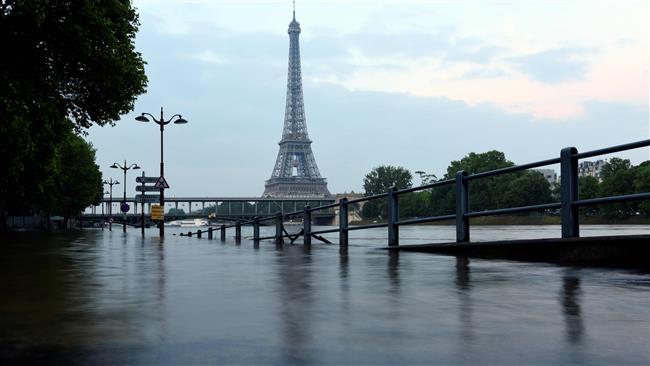Climate change ‘alters Europe river floods cycles’


Climate change has shifted the timing of flooding in European rivers in the past 50 years, causing deluges earlier in the northeast and later around parts of the Mediterranean, scientists said on Thursday.
Floods affect more people worldwide than any other natural hazard and UN estimates put the amount of damage they cause at $104 billion a year. Predicting the timings can help protect people and guide crop plantings, irrigation, and hydropower generation.
“Climate change has impacted flood timing in Europe,” lead author Guenter Bloeschl of the Vienna University of Technology told a telephone news conference. “But it did so in very different ways in different parts of Europe.”
His international team studied European river data from more than 4,200 measuring stations from 1960-2010 and said the findings, published in the journal Science, were the first to link global warming to floods across a continent.
The clearest evidence was in northeastern Europe, spanning western Russia, the Baltics, and Nordic nations, where snows were melting earlier in spring. Peak floods in spring were often more than eight days earlier than in 1960, it said.
“Years with late snow melt have become rare” in the region, co-author Berit Arheimer of the Swedish Meteorological and Hydrological Institute said.
Elsewhere, the peak autumn season for floods along the Atlantic coast from Portugal to England, when soils get waterlogged by rain, had become earlier in the past half century.
By contrast, floods came a few days later around much of the North Sea and parts of the Mediterranean such as the Adriatic coast, because of delays in rains in winter.
It linked some of the changes to shifts in the tracks of Atlantic storms, which many scientists say are influenced by factors including a thaw of ice in the Arctic.
Sergio Castellari, a flood expert at the European Environment Agency, who was not involved in the research, said the study of flood timing was a “very promising” approach to detect the influence of climate change.
Until now, climate studies have often focused on shifts in the severity of floods that are often skewed by factors other than rising temperatures linked to man-made greenhouse gas emissions, he said.
Human engineering, for instance, has squeezed many rivers into narrower courses to make way for cities, aggravating risks of overflows. And rainwater runs faster into rivers off concrete and tarmac than from fields or forests.
David Shultz, a professor of meteorology at Manchester University, who was also not involved in the research, cautioned that analyzing a 50-year period when “many of the regions show interesting variations across the decades is problematic.”
He noted that the study’s definition of “Southern England,” for instance, excluded the London region and the southeast.
(Source: Reuters)




